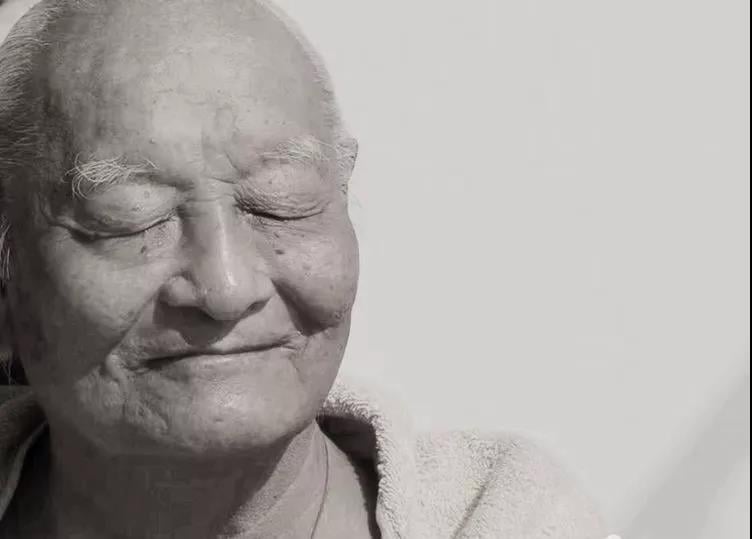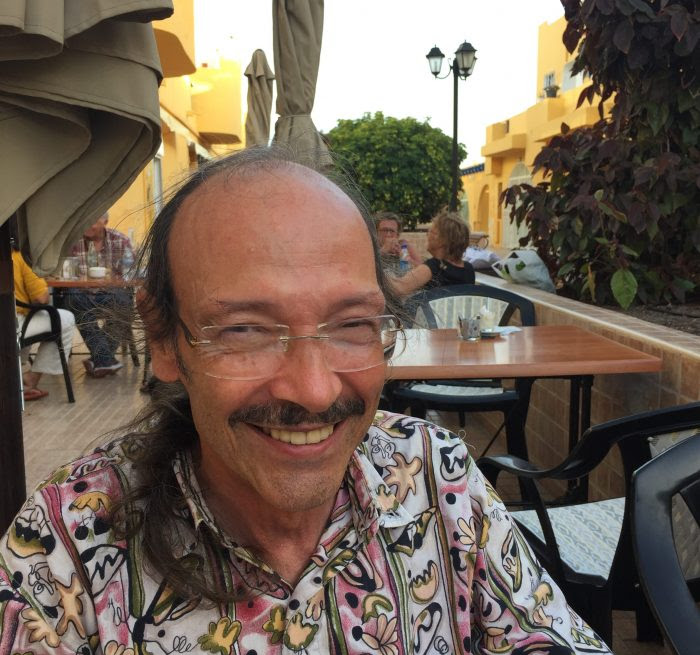
September 11 till 16, 2021 with SMS Instructor Elías Capriles
Including September 11, 19:00 CEST
Public Talk: The Three Phrases of Guru Garab Dorje’s Testament
Both the retreat and public talk will be broadcasted via Zoom. Translation to Italian and Spanish is also possible if it is required. The public talk is open for everyone, while to follow the retreat you need to have Direct Introduction.
For a description of the contents of the retreat and a biography of the teacher, please see below.
Location: Rangdrolling (Nemoland, Overbrakerpad 2, 1014 AZ Amsterdam)
Registration: via contact form https://forms.gle/KkiUJYdMqfq5nHYKA
Registration for Public Talk Only: https://forms.gle/4RWZN6VGJwG2ZenS8
Price public talk: non-Members 10€
Price retreat Zoom Members: 20€ per day / 80€ for entire course
Price retreat Zoom non Members: 25€ per day / 100€ for entire course
Price retreat Onsite sustaining: 20€ per day / 80€ for entire course
Price retreat Onsite ordinary: 30€ per day / 120€ for entire course
Payment
Bank details:
IBAN: NL72 INGB 0006 0658 80
BIC: INGBNL2A
In name of: Int. Dzogchen Community of Rangdrolling
with mention Retreat or Public talk
PayPal: info@dzogchen.nl
with mention Retreat or Public talk
No one will be turned away for lack of funds, in this case please contact us:
info@dzogchen.nl
You can also reach us in the e-mail above, if you have any question.
Schedule
Sat, 11th September First Session 15:00-17:00
Sat, 11th September Public Talk 19:00-21:00
Sun, 12th September– Thursday 16th September 10:00-12:00 and 15:00-17:00
11th. September 19:00
Public talk: The Three Phrases of Guru Garab Dorje’s Testament
Registration for Public Talk Only: https://forms.gle/4RWZN6VGJwG2ZenS8
Guru Garab Dorje was the Master who introduced Buddhist Dzogchen to our human world.
In this lecture, Elías will explain the deep meaning of the three phrases of the testament of Guru Garab Dorje: (1) Direct Introduction; (2) to obtain a decisive certainty; (3) to continue in the state of rigpa.
(1) Direct Introduction means having an initial glimpse of rigpa, which is the nonconceptual, nondual Knowledge (of) the true condition of reality, in a state of instant, immediate, nondual Presence.
(2) “To obtain a decisive certainty.” According to Chögyal Namkhai Norbu, this phrase has been inaccurately translated as “to decide upon this single point.” This is a mistranslation because when one decides, it is the conceptual, dualistic mind that decides, and thus this decision is delusive. So Rinpoche translates it as “Not to remain in doubt” (as to the fact that one had a glimpse of rigpa and that rigpa is the knowledge of the true condition of all reality)—because rigpa cannot be remembered reflexively, as ordinary, conceptual, dualistic memories are remembered.
Paltrul Rinpoche noted that it also imperative “to gain confidence on self-liberation,” for we need to be certain that, when we look at a thought after Direct Introduction, it will self-liberate.
(3) The last phrase refers to the main practice of Dzogchen, which consists in continuing in the state of rigpa to which one was Introduced.
Therefore, the three phrases of Garab Dorje’s testament are the summary of the whole practice of Dzogchen.
11th-16th September
Retreat on Semdzins, Secret Rushens and Contemplation With the Emphasis on Kadag
This retreat will be focused mainly on practicing Semdzins, Secret Rushens and Contemplation with the emphasis on kadag.
With the Semdzins and Secret Rushens we have a possibility of discovering rigpa, or returning to the state of rigpa if we have already had glimpses of it. That practice should help us be certain about our own discovery of rigpa and the fact that this condition is the true condition of ourselves and all reality (i.e., it will serve for “Not remaining in doubt,” which is how Chögyal Namkhai Norbu glossed the second phrase of Guru Garab Dorje’s testament).
At the same time, the best way to become familiar with the self-liberation of thought in Dzogchen Katak Contemplation and to develop confidence on it (which is how Paltrul Rinpoche glossed the second phrase of Guru Garab dorje’s testament), is by nakedly and barely looking at the stuff and essence of the thoughts that arise immediately after having had a glimpse of rigpa.
Once, (through the practices of Semdzin, Rushen, the Seventh Lojong, Khorwa Yedal and other introductory practices), we have given ourselves direct introduction, we have gone beyond doubt and we have developed confidence that thoughts liberate spontaneously upon looking at their stuff and essence, (barely and nakedly), then we can receive teachings on Trekchod to continue in the state of rigpa without deviating into samsara. And when we have developed enough confidence in spontaneous liberation in intense situations, we can then receive Thögal instructions and devote ourselves to that practice.
Finally, there will be advice to the sangha, including an explanation of the principles of Contemplation with the emphasis on lhundrub.

Elías`s BIO
Elías Capriles is a Santi Maha Sangha Teacher appointed by Chögyal Namkhai Norbu,
whom he met in 1978 in Boudhanath. He practiced Dzogchen in successive strict 3
months retreats on the Himalayas between 1977 and the end of 1982, after receiving
Trekchö (Khregs chod) instructions from H.H. Dudjom Rinpoche and Dungse Thinle
Norbu Rinpoche. He also received teachings and transmissions from H.H. Dilgo
Khyentse, Dodrub Chen Rinpoche, Chatral Rinpoche and Pema Norbu Rinpoche.
As a whole, he has had twenty books published, as well as five Internet books, over
forty academic papers and twelve book chapters, dealing with Dzogchen and Tibetan
Buddhism; transpersonal psychology; ontology; philosophy of history; aesthetics;
political philosophy; epistemology; sociology; axiology, etc. Various of these are on
Buddhism and Dzogchen (including a poetry work) and Buddhist philosophy (it is
relevant to mention an as yet unachieved work called Buddhism and Dzogchen — Vol.
I: Buddhism that is freely available on the Web).
He is retired from the Chair of Eastern Studies and the Center for Studies on Africa and
Asia the University of The Andes, Mérida, Venezuela, where he taught Philosophy,
Buddhism, Asian Religions, Globalization and Asian Aesthetics and Arts.
He has offered conferences in many Universities across the Americas, Europe and Asia,
and has also led workshops and courses in many countries.
He managed “spiritual emergency refuges” where “psychotics” would go through the
natural self-healing process in which they unwillingly embarked, and has been an
ecological activist.
He is a member of the Board of the International Transpersonal Association; among shis
works on this subject, most recent and best known is the four-volume work The Beyond
Mind Papers: Transpersonal and Metatranspersonal Theory (Blue Dolphin, Nevada
City, CA, 2013). His most recent book is Chamanismo y Dzogchen (Barcelona, La
Llave, 2019).
